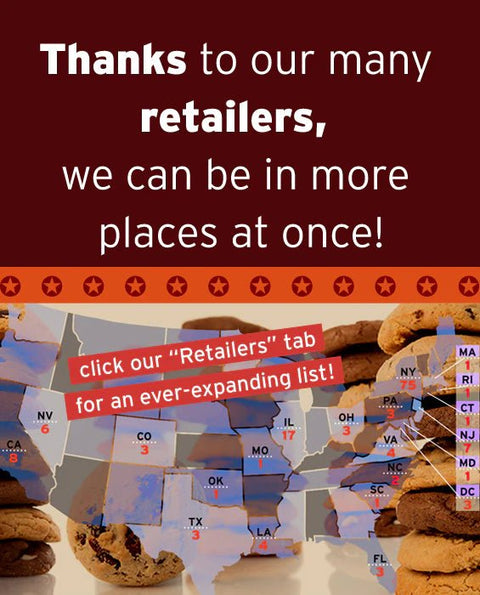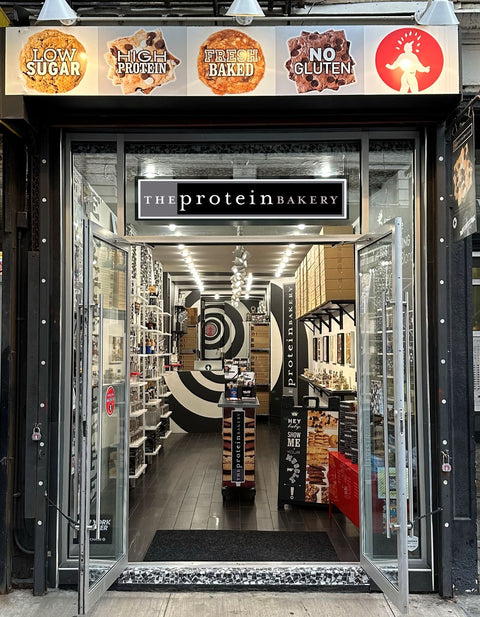
As a small business owner myself, I fully understand that there is no one perfect recipe for success when it comes to creating a startup.
Working with food startups on the surface level (branding and marketing) has given me an insight into some of the grit and hustle that goes into getting brand exposure - but I wondered about the other cogs in the machine.
What challenges do these foodie founders face? What strengths are required to overcome them? I asked some successful food startups to share their insights and here's what I learned:
1. Master your product first
It seems like an obvious one, but if you aren't 100% happy with the product you're selling, how can you sell it to anyone else? It takes ongoing effort, but it's crucial to keep refining your product until you get it right.
Return to your customers and gather feedback before expecting to grow. Investing time and effort into these processes will pay off in the long run.
"Years of working in fitness, speaking with instructors, members and seeking out health experts... was one side of my research but there was also the indulgence aspect. Wanting to deliver something satisfying required insights from foodies and LOTS of hours in the test kitchen. Once I had that first cookie, I knew my vision was possible and I was on my way." ~ Stephen Charles Lincoln, The Protein Bakery
2. Get direct feedback from your target market
You may believe you have a great product, but if your target market aren't delighted with it you won't get far.
Going directly to where your potential customers will be and giving out samples is a great start to getting instant feedback.
"I handed out the first samples of The Protein Bakery to everyone who took my fitness classes. I just wanted honest feedback from people that were into eating healthier but with a twist." ~ Stephen Charles Lincoln, The Protein Bakery
"In store tastings, shelf talkers and promotions all help to increasing sales and get the products into people's baskets." ~ Sarah and Isolde, Cool Beans
3. You can't be all things to all people
It isn't an easy one to accept, but even the greatest businesses are never going to please everyone. The food industry is particularly divisive - with extremes in every area of taste and choice.
"Trying to be all things to all people is pointless. I know I'll never be able to satisfy everyone's every desire, so I focus on my mission." ~ Stephen Charles Lincoln, The Protein Bakery
"Too often people make the mistake of creating a product no one wants. They think people want it, perhaps simply because the creator does themselves! It's crucial to remember that the product is king." ~ Charlie Thuillier, Oppo Ice Cream
4. Know the problem you're aiming to solve
Your product may taste great, but if it isn't something that satisfies a need that part of the population face, then it may fall flat.
Keeping the customers needs in mind, how can you make a clear offering to solve their problem with your product? It's a great way to ensure you not only grab their attention once, but to turn them into repeat customers.
"Is it a problem for others too? Understand your product/service proposition, and understand who you want to target. From this stems everything else." ~ Charlie Thuillier, Oppo Ice Cream
"I'm always pushing myself to make sure my high-protein products are like none other and create a niche no one else can fill." ~ Stephen Charles Lincoln, The Protein Bakery
5. Be part of a community
None of the startups I spoke to recommended investing in going to expensive seminars or workshops, but nearly all told me about the invaluable support they get from being part of a community of like-minded business owners.
"I was invited to join a small network called "The Female Creatives." We've all started our own businesses in something we're passionate about, but we all share many common issues." ~ Ros Heathcote, Borough Broth Co.
"I keep very engaged with everyone on social media. Our followers always keep me on my toes. Plus, with our NYC brick and mortar store, I'm getting the freshest feedback." ~ Stephen Charles Lincoln, The Protein Bakery
6. Don't take shortcuts
Clearly there's no 'quick start' guide to creating a successful food startup, and all the founders I spoke to were evidence of a lot of hard work paying off.
"We're fully compliant with food safety regulations, ethical standards and insist on using the finest ingredients. It is important to stay true to our brand. It's my personal promise in every wrapper." ~ Stephen Charles Lincoln, The Protein Bakery
"Don't skimp on the design costs when it comes to your branding. Good branding should be viewed as an investment." ~ Suzie Walker, Primal Pantry
Food for thought...
It was an eye opener to see what the various food startups attributed to their success - and just how much they had in common.
They began with their customer in mind, solved a problem for them and stayed committed.
These tips are undoubtedly a starting point for any entrepreneurs looking to start a food business.



